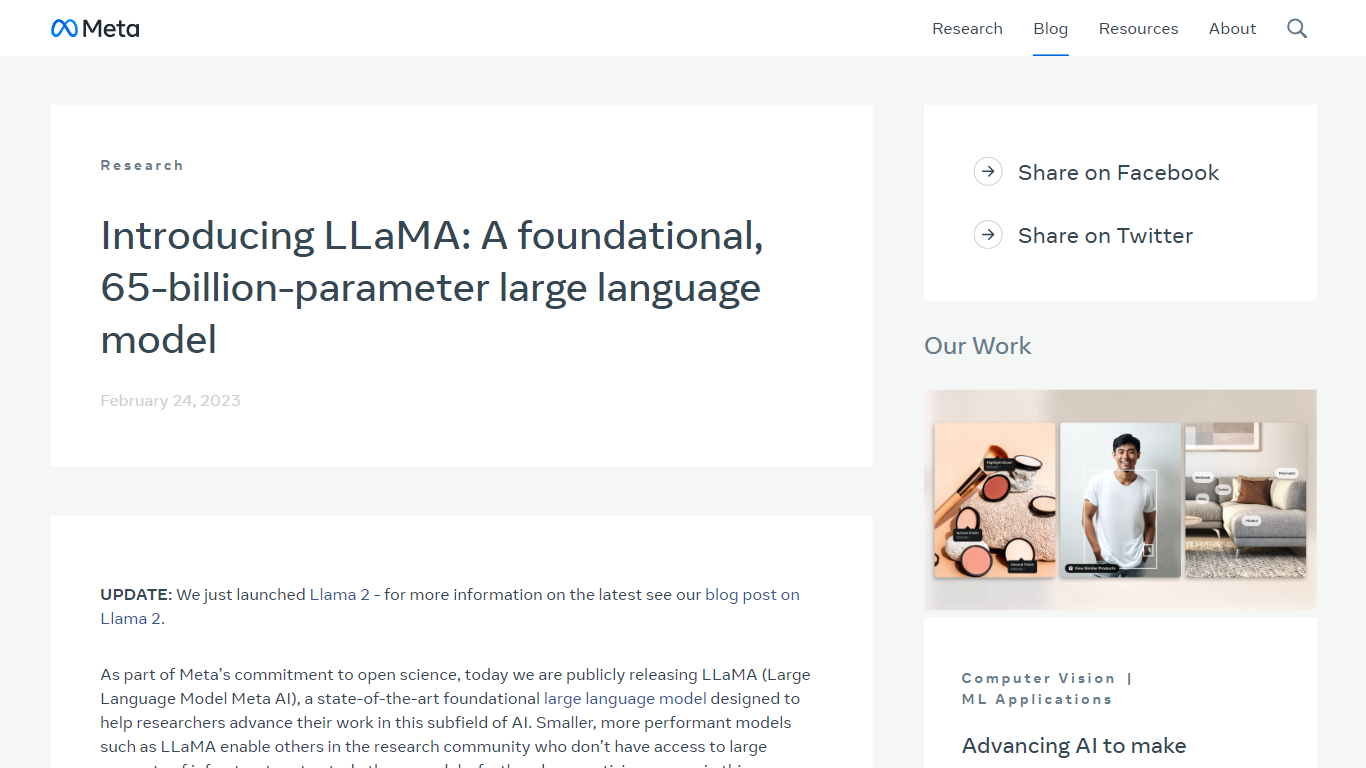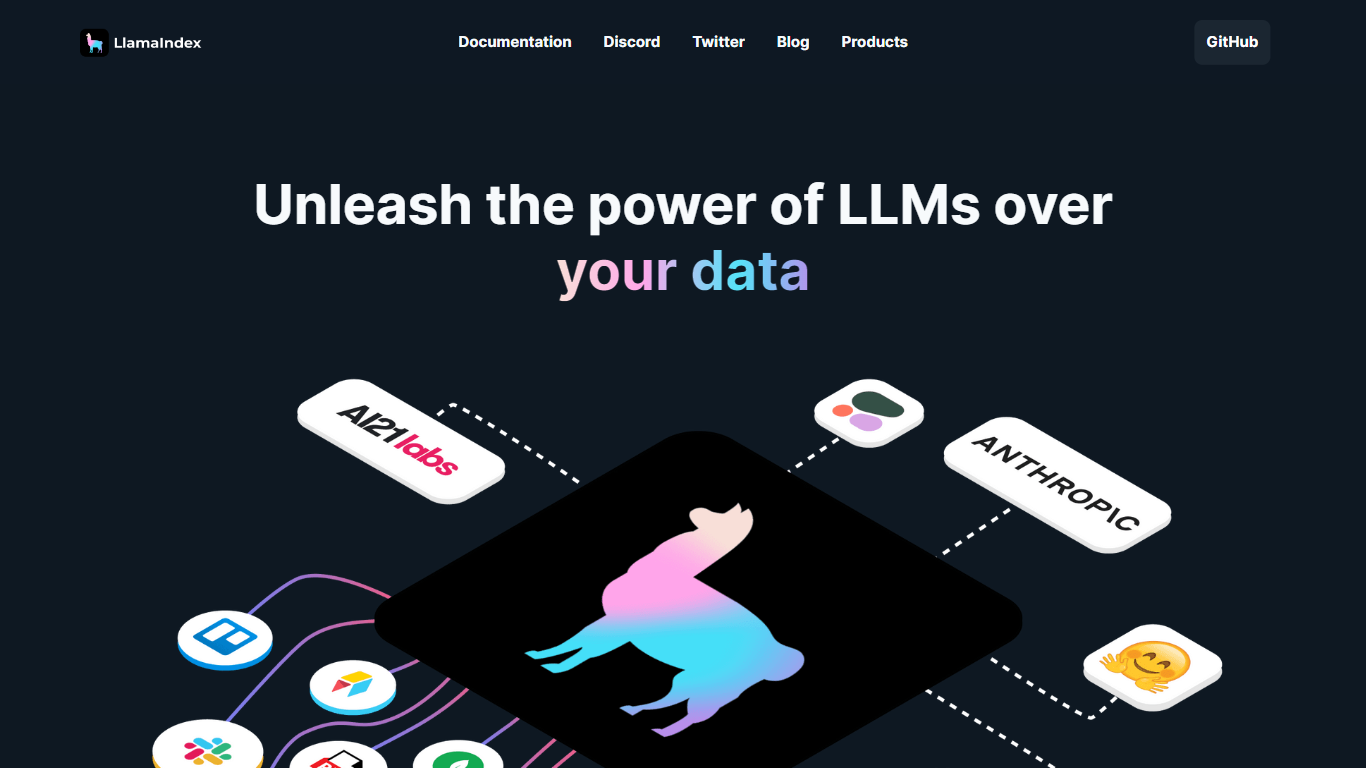LLaMA vs LlamaIndex
In the battle of LLaMA vs LlamaIndex, which AI Large Language Model (LLM) tool comes out on top? We compare reviews, pricing, alternatives, upvotes, features, and more.
Between LLaMA and LlamaIndex, which one is superior?
Upon comparing LLaMA with LlamaIndex, which are both AI-powered large language model (llm) tools, Neither tool takes the lead, as they both have the same upvote count. Your vote matters! Help us decide the winner among aitools.fyi users by casting your vote.
You don't agree with the result? Cast your vote to help us decide!
LLaMA

What is LLaMA?
Meta AI introduces LLaMA, an innovative 65-billion-parameter foundational language model, breaking new ground in the realm of language processing. Designed with efficiency in mind, LLaMA stands out for its remarkable performance despite a lower demand for computing resources. This groundbreaking model is presented in multiple sizes, catering to various research needs and allowing for extensive fine-tuning and application across a multitude of tasks. The emphasis on responsible AI practices is commendable, ensuring that the model adheres to ethical standards while aiding research across the globe. LLaMA brings with it the promise of advancing AI technology while mitigating challenges such as bias and toxicity commonly encountered in large language models.
LlamaIndex

What is LlamaIndex?
LlamaIndex presents a seamless and powerful data framework designed for the integration and utilization of custom data sources within large language models (LLMs). This innovative framework makes it incredibly convenient to connect various forms of data, including APIs, PDFs, documents, and SQL databases, ensuring they are readily accessible for LLM applications. Whether you're a developer looking to get started easily on GitHub or an enterprise searching for a managed service, LlamaIndex's flexibility caters to your needs. Highlighting essential features like data ingestion, indexing, and a versatile query interface, LlamaIndex empowers you to create robust end-user applications, from document Q&A systems to chatbots, knowledge agents, and analytics tools. If your goal is to bring the dynamic capabilities of LLMs to your data, LlamaIndex is the tool that bridges the gap with efficiency and ease.
LLaMA Upvotes
LlamaIndex Upvotes
LLaMA Top Features
Efficient and Competitive: LLaMA is designed to be more efficient, requiring fewer computing resources, while maintaining competitive performance.
Variety of Sizes: The model is available in multiple sizes (7B, 13B, 33B, and 65B parameters), to suit different research needs.
Inclusive Access: Aiming to democratize AI, LLaMA is made accessible to a wider research community, including those with limited resources.
Responsible AI Practices: Meta AI incorporates principles of Responsible AI in LLaMA's development to address ethical concerns such as bias and toxicity.
Multilingual Training: LLaMA was trained on data from 20 languages with the most speakers, providing robust multilingual support.
LlamaIndex Top Features
Data Ingestion: Enable integration with various data formats for use with LLM applications.
Data Indexing: Store and index data for assorted use cases including integration with vector stores and database providers.
Query Interface: Offer a query interface for input prompts over data delivering knowledge-augmented responses.
End-User Application Development: Tools to build powerful applications such as chatbots knowledge agents and structured analytics.
Flexible Data Integration: Support for unstructured structured and semi-structured data sources.
LLaMA Category
- Large Language Model (LLM)
LlamaIndex Category
- Large Language Model (LLM)
LLaMA Pricing Type
- Freemium
LlamaIndex Pricing Type
- Freemium
